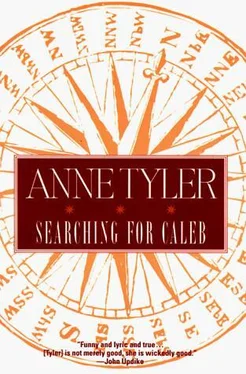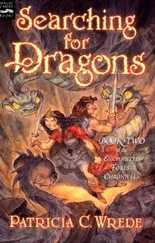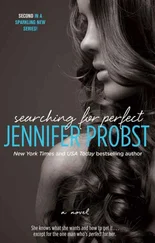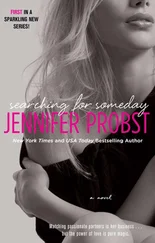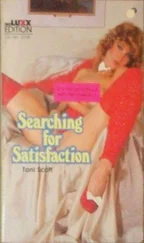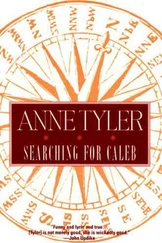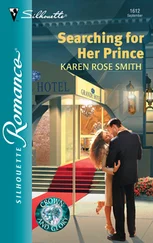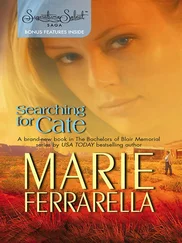Anne Tyler - Searching for Caleb
Здесь есть возможность читать онлайн «Anne Tyler - Searching for Caleb» весь текст электронной книги совершенно бесплатно (целиком полную версию без сокращений). В некоторых случаях можно слушать аудио, скачать через торрент в формате fb2 и присутствует краткое содержание. Жанр: Современная проза, на английском языке. Описание произведения, (предисловие) а так же отзывы посетителей доступны на портале библиотеки ЛибКат.
- Название:Searching for Caleb
- Автор:
- Жанр:
- Год:неизвестен
- ISBN:нет данных
- Рейтинг книги:5 / 5. Голосов: 1
-
Избранное:Добавить в избранное
- Отзывы:
-
Ваша оценка:
- 100
- 1
- 2
- 3
- 4
- 5
Searching for Caleb: краткое содержание, описание и аннотация
Предлагаем к чтению аннотацию, описание, краткое содержание или предисловие (зависит от того, что написал сам автор книги «Searching for Caleb»). Если вы не нашли необходимую информацию о книге — напишите в комментариях, мы постараемся отыскать её.
Searching for Caleb — читать онлайн бесплатно полную книгу (весь текст) целиком
Ниже представлен текст книги, разбитый по страницам. Система сохранения места последней прочитанной страницы, позволяет с удобством читать онлайн бесплатно книгу «Searching for Caleb», без необходимости каждый раз заново искать на чём Вы остановились. Поставьте закладку, и сможете в любой момент перейти на страницу, на которой закончили чтение.
Интервал:
Закладка:
"How did you know?"
She hadn't known she did know.
Then sometimes people came whose flat, frictionless lives offered Justine no foothold at all, and she slid into whatever general advice came to mind.
"Don't rely too heavily on a man who bites his fingernails."
In the next room, Duncan snorted.
Justine charged three dollars for each reading. They needed it; their milk customers barely paid for the newspaper ad. Juggling the budget to meet the rent, scraping up money from half a dozen sources, Justine had the feeling that she had been through all this years and years ago. Then she remembered: Monopoly. When Duncan had wiped her out and she was selling back hotels and mortgaging her railroads and turning in her get-out-of-jail-free card, all to pay the rent on Boardwalk. Their present problems did not seem much more serious than that. She knew that Duncan would manage.
For Christmas they went home to Baltimore. The family was very cautious and tactful, circling widely around all delicate subjects. It broke Justine's heart to see what an effort they made. She worried about Duncan-would he say something new to hurt them? She went to bed each night exhausted. But Duncan was meticulously polite. He passed around the gifts that Justine had made by hand and he even invited the family to come and visit some Sunday. ("Oh, well, but it's so much more comfortable for you to come here, don't you think?" everybody said.) On the fourth day, when he became very quiet, Justine was quick to agree that they should head back early. She felt sad saying goodbye, particularly to her grandfather, but each time now it seemed a little easier than before.
In February, when money was especially tight, Duncan got a part-time job in town reporting for the Buskville Bugle. "But you can't spell!" said Justine.
"Never mind, you can."
For three weeks he ricocheted around the countryside, attending cornerstone layings, turtle derbies, zoning meetings, a Future Farmers contest in parliamentary procedure, a lecture on crop rotation. He enjoyed everything he went to, indiscriminately, and came home full of new scraps of information. "Did you know you can call up earthworms by vibrating a stick in the ground? If you harvest crimson clover too late it will turn into balls in your horses' stomachs. I've learned a quilting pattern from the eighteenth century." But then writing the articles made him irritable. He never did like going at something systematically. He would hand Justine great sheaves of yellow paper all scrawled over and crossed out, with doodles in the margins. When she ran through them with a red pencil, correcting his spelling and slashing through his long digressions, he lost his temper. "Occurrence, o-c-u-r-e-n-c-e," he said.
"Why wreck it up adding extra c's and r's?"
"Because that's how it's spelled."
"A waste of letters. This language has no logic to it."
"I can't help that."
"Why'd you cross out my butterfly paragraph?"
"In an article on potato blight?"
"There happened to be a particularly fine great spangled fritillary sitting on the farm agent's shoulder, totally out of season, ignored by everybody, all the way through the lecture. You can't expect me to overlook a thing like that."
And he would type the article complete and hand it in to the office, where any reference to butterflies was immediately deleted.
"They have minds like a snake's intestinal tract," Duncan said.
The fourth week, he attended an amateur musicians' contest. His article that night began very well, describing the contest's history, its sponsors, and the instruments represented. The next paragraph switched suddenly to first person and related his own impromptu entry with a borrowed harmonica, playing "Chattanooga Choo Choo" for which he won fourth prize. In the third paragraph he reflected on the oddity of the word "impromptu," which could easily be mistaken, he said, for the name of some obscure Rumanian composer.
The newspaper editor said that, actually, they didn't need a new reporter as much as they had thought they would.
By March, Duncan was becoming restless. Justine was not sure why.
Everything was going well, six does had been dried off in preparation for their kidding in the spring. But Duncan rattled around the house like a bean in a box, staring out one window after another, starting inventions he didn't finish, sending off to the Department of Agriculture for pamphlets on all sorts of impulsive projects: angora rabbits, fruit trees, popcorn. He painted half the kitchen yellow and then quit. He brought home a carload of rhododendron bushes with their roots balled up in burlap and he planted them all around the yard. "But Duncan," Justine said, "do you think this is the proper time?" They were still wearing overcoats to bed; the ground was still cold and gray. "Why do I have to do everything properly?" he asked. "Don't worry, I've got a green thumb.
A green hand. I'm a whole green man." And sure enough, the rhododendron took heart and started growing. But Duncan went off and forgot all about it; his strange mood hadn't eased in the least. "To tell the truth, Justine," he said, "this winter business is wearing thin. I imagined we'd be sitting by the stove oiling harness leather or something, but we don't have any harness leather. Don't you feel tired of it all?"
"No," Justine said.
She watched, frowning, while he measured the kitchen for some shelves.
She didn't think he would ever finish them.
In April eight kids were born, all does. "Did you ever see such luck?
We've got a whole damn herd," Duncan said. Justine was glad because the bucks would have had to be killed. She spent hours playing with the kids, running across the field so that they would frolic behind her. They kicked up their heels and turned awkward half cartwheels. She set her face next to their muscular little muzzles; their yellow, slashed-looking eyes looked softly back at her. After the first few days they were switched to bottle feedings, and then to milk from a pan, while Justine crouched beside them and stroked their tufted spines. She fed them handfuls of grass to accustom them to solid food, and for most of the day she kept them in her yard. Meanwhile Duncan carried in endless buckets of warm milk, which he filtered and ran through the great silvery separator.
There was suddenly a stream of customers with indigestion, allergies, or colicky babies, all desperate for goat milk, and the grocery store in Buskville had shown an interest in carrying Duncan's cheeses. "There," said Justine. "I knew it would work out!"
"Well, yes," Duncan said.
In May, all the kids died in one night from eating rhododendron leaves.
Justine wandered around forlornly for days, mourning as if the kids had been human. But all Duncan would say was, "Isn't it peculiar? You would think if rhododendron was poisonous they'd know it."
"All those lovely little brown soft furry babies," Justine said.
"But then, goats are fairly intelligent. Are intelligence and instinct inversely related?"
"At least we have the nannies still," Justine said. "We don't have to start completely over."
"No."
"And there'll always be a new batch next year, and I won't let them in the yard at all."
Duncan picked up her hand. "Justine," he said, "what would you think of getting out of the goat business?"
"What? Oh, Duncan, you can't quit now. Not after one little setback!"
"No, that's not the reason. I've been considering this for some time. I mean, there's no challenge to it any more. Besides, it keeps you tied down, you always have to be around at milking time. It makes me feel stuck, I feel so-and I was thinking. You know what I enjoyed most this year? Building that hen house. Putting things together, fixing them up.
Now Ma's brother Ed has a sort of cabinetworks down in Virginia, making unfinished furniture and so on. If he could take me in-"
Читать дальшеИнтервал:
Закладка:
Похожие книги на «Searching for Caleb»
Представляем Вашему вниманию похожие книги на «Searching for Caleb» списком для выбора. Мы отобрали схожую по названию и смыслу литературу в надежде предоставить читателям больше вариантов отыскать новые, интересные, ещё непрочитанные произведения.
Обсуждение, отзывы о книге «Searching for Caleb» и просто собственные мнения читателей. Оставьте ваши комментарии, напишите, что Вы думаете о произведении, его смысле или главных героях. Укажите что конкретно понравилось, а что нет, и почему Вы так считаете.
